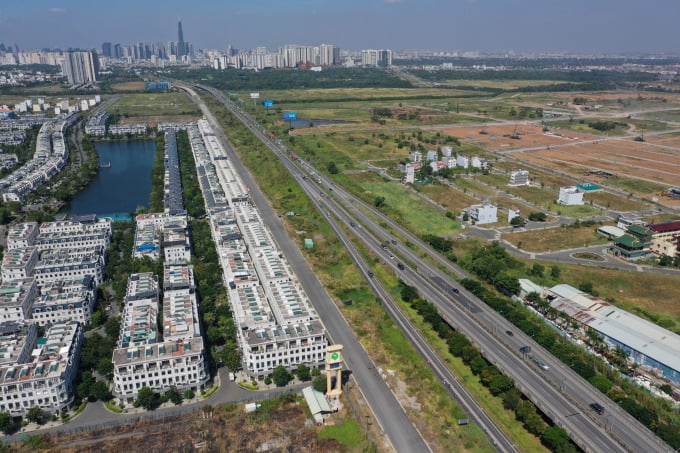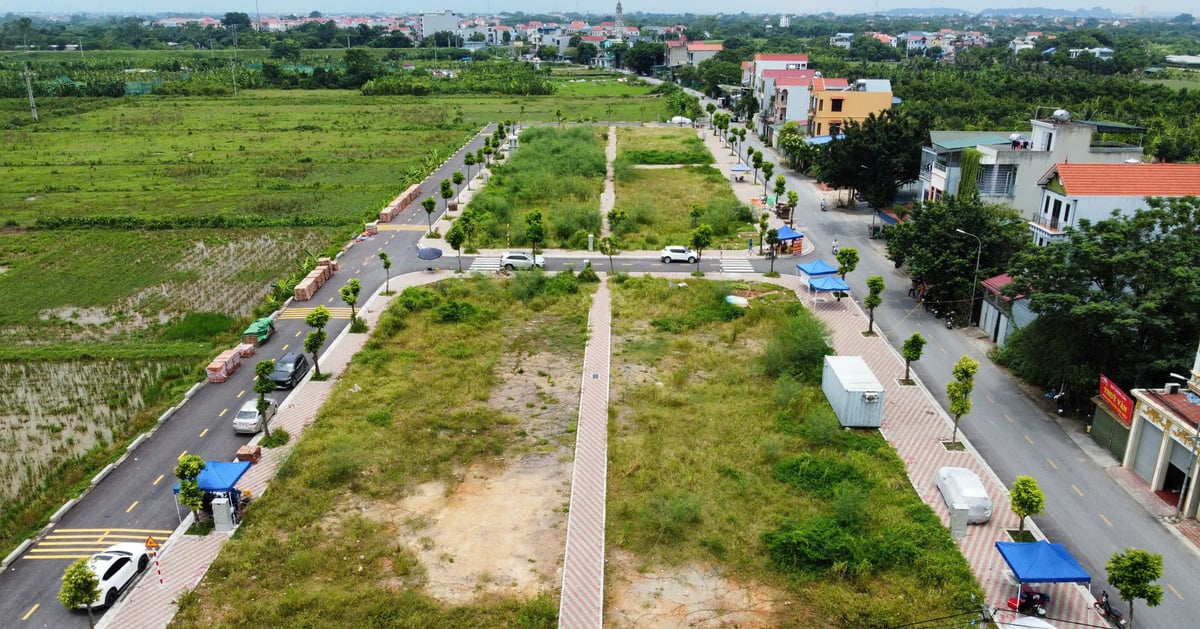Management agencies, investors, valuation enterprises and review experts can collude to distort land prices, which is a negative thing that needs to be prevented when amending the Law, according to HoREA.
The Ho Chi Minh City Real Estate Association (HoREA) has just submitted to the National Assembly Standing Committee a number of opinions related to the Draft Law on Land (amended), in which it warns against the risk of collusion in land price fixing when appraising prices.
According to HoREA, there are four entities involved in appraising and deciding on land prices for real estate projects at the provincial level. The first is the State agencies (Department of Natural Resources and Environment, Director of the Department of Finance and Provincial People's Committee).
The next subject is the real estate project investor who is directly affected by land valuation activities. The third is the valuation enterprise (providing land valuation services and valuation reports or certificates). Finally, the reviewer is invited to participate in the Land Valuation Council; performing the task of independently reviewing the valuation and valuation activities of this Council before submitting to the Provincial People's Committee for decision on land prices.
Mr. Le Hoang Chau, Chairman of HoREA, said that there are many cases where these entities actively collude with each other to arrange land prices, causing the results of land valuation to be distorted. He said that these situations need to be clearly identified in order to have mechanisms and solutions to prevent and combat loss of state budget revenue and loss of public assets because these are land resources.

Real estate in the East of Ho Chi Minh City around Thu Thiem area. Photo: Quynh Tran
Mr. Chau added that currently, the 5 land valuation methods including comparison, deduction, income, surplus and land price adjustment coefficient have not met the accuracy requirements. These 5 methods do not include the mass appraisal method and have not built a complete price input database, and have not been updated in real time, leading to unreliable valuation results.
The application of old valuation methods leads to a situation where the same real estate project, if carried out by only one valuation enterprise but applying two different valuation methods, gives two different results with a value difference of 17%. Meanwhile, the same real estate project but applied by two different valuation enterprises using the same land valuation method also gives two different results with a value difference of about 17%.
The Chairman of HoREA also raised the sensitive issue that a number of officials, civil servants, and public employees working in the field of land and land finance are afraid of responsibility and legal risks in performing their duties. They push things around, transfer documents in circles, do not dare to propose, do not dare to decide, or set land prices very high compared to market prices to stay safe.
Similarly, many valuation enterprises do not accept to participate in land valuation to determine land use fees and land rents of real estate projects paid to the state budget because they are afraid of responsibility and legal risks in performing land valuation work.
Faced with these shortcomings, HoREA recommends that the central government consider the proposal of the Ho Chi Minh City People's Committee submitted to the Government on piloting the application of the land price adjustment coefficient method. This proposal will lead to the necessity of issuing a land price adjustment coefficient (coefficient k4) to calculate land use fees for all commercial housing projects regardless of the value above or below 30 billion VND according to the Land Price List.
On that basis, the State can decide on land use fees and land rent within a period of no more than 6 months from the date of issuance of the decision on land allocation, land lease, and permission to change land use purpose. This point is similar to the regulation that the land valuation certificate is valid for no more than 6 months.
Mr. Chau said that the proposal of the Ho Chi Minh City People's Committee will formalize the calculation of land use fees and land rents for real estate projects, commercial housing, and urban areas to ensure transparency. From there, the State and enterprises can both predict the amount of land use fees and land rents that must be paid to the state budget.
"Resolving the backlog of land finance will demonstrate the role of the State in leading the market rather than following the market, ensuring adequate, correct and timely collection for the budget, while ensuring the rights of project investors and the people," he emphasized.
Faithful
Source link










































![[Photo] Prime Minister Pham Minh Chinh chairs Government Conference with localities on economic growth](https://vstatic.vietnam.vn/vietnam/resource/IMAGE/2025/2/21/f34583484f2643a2a2b72168a0d64baa)


























































Comment (0)